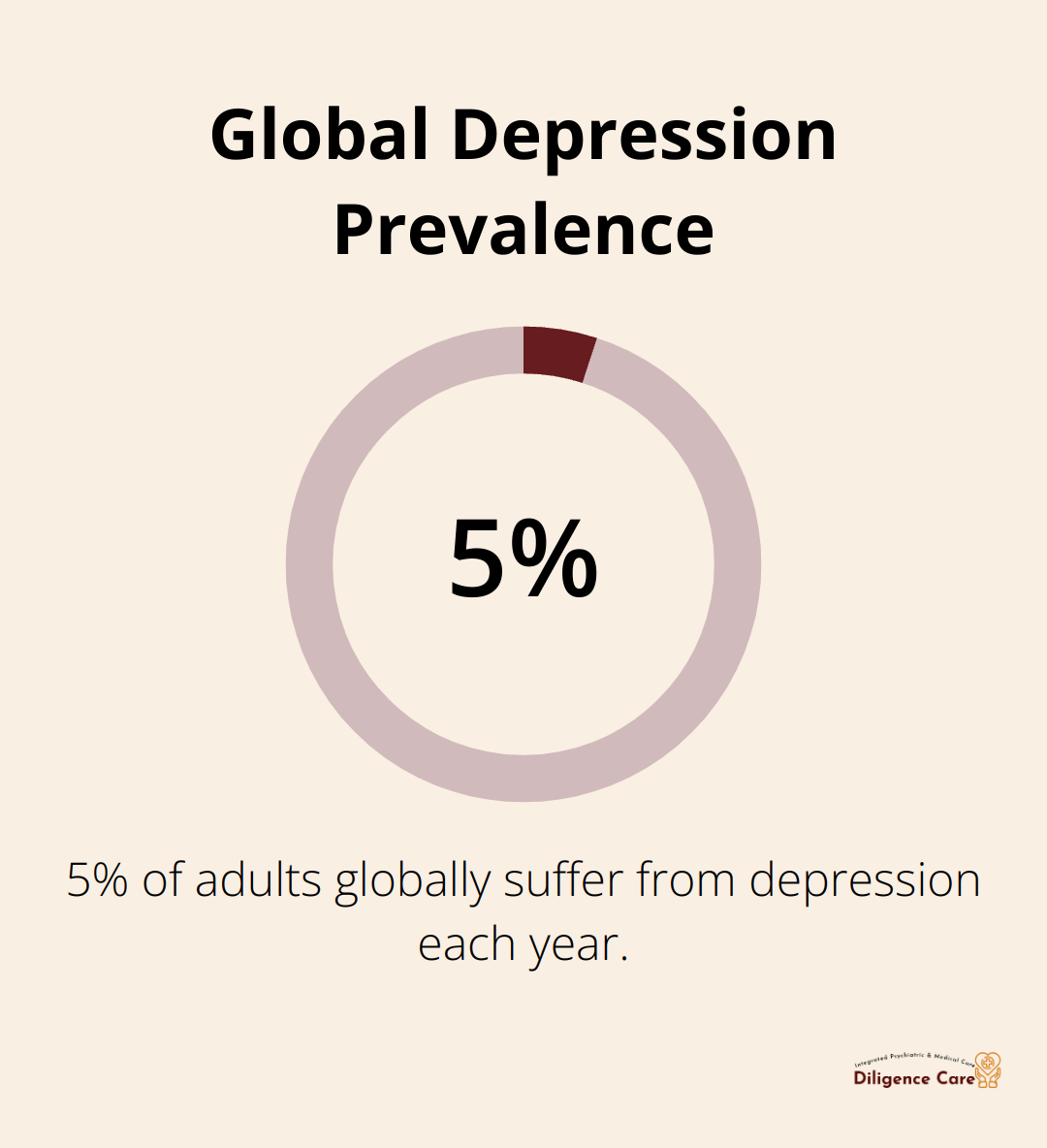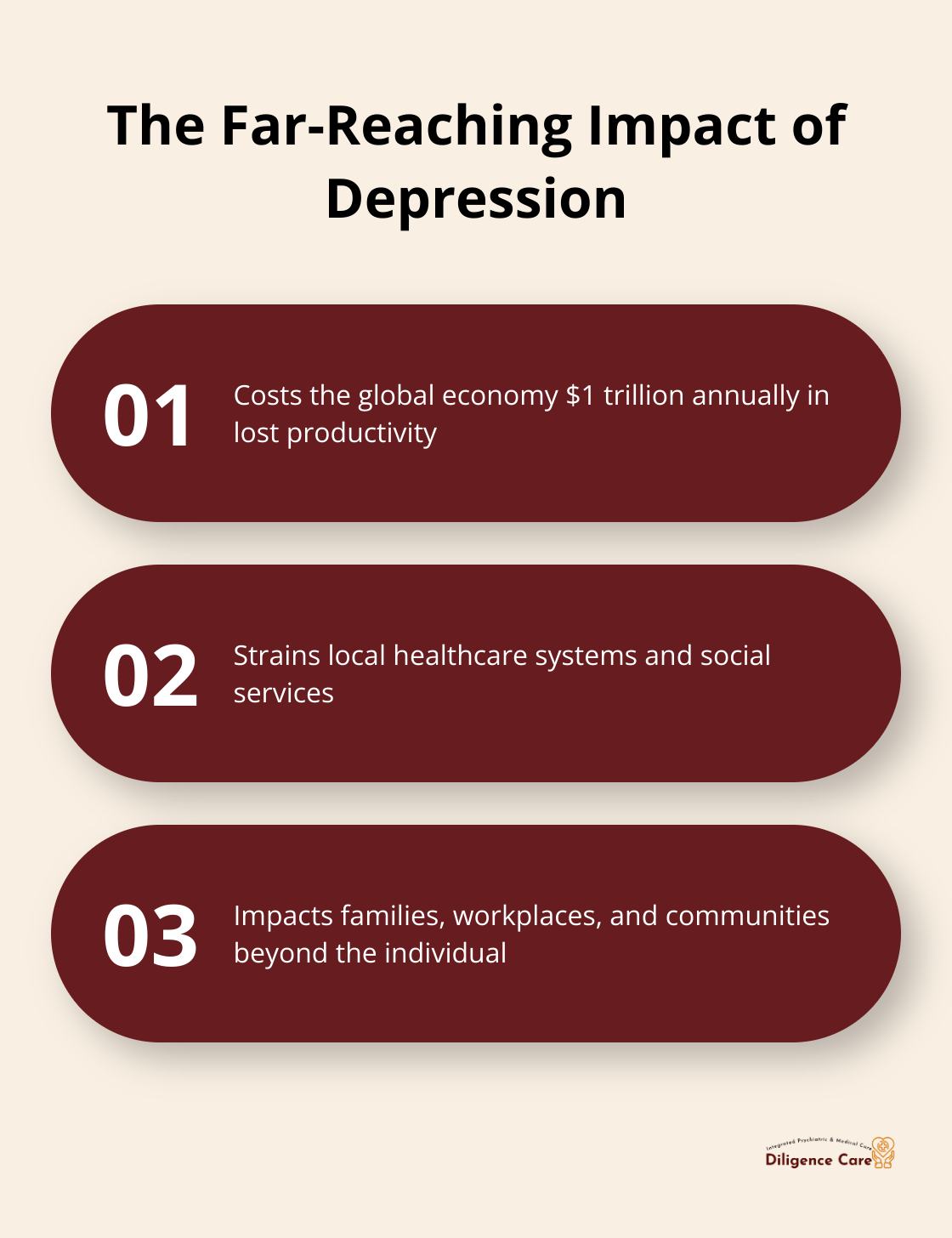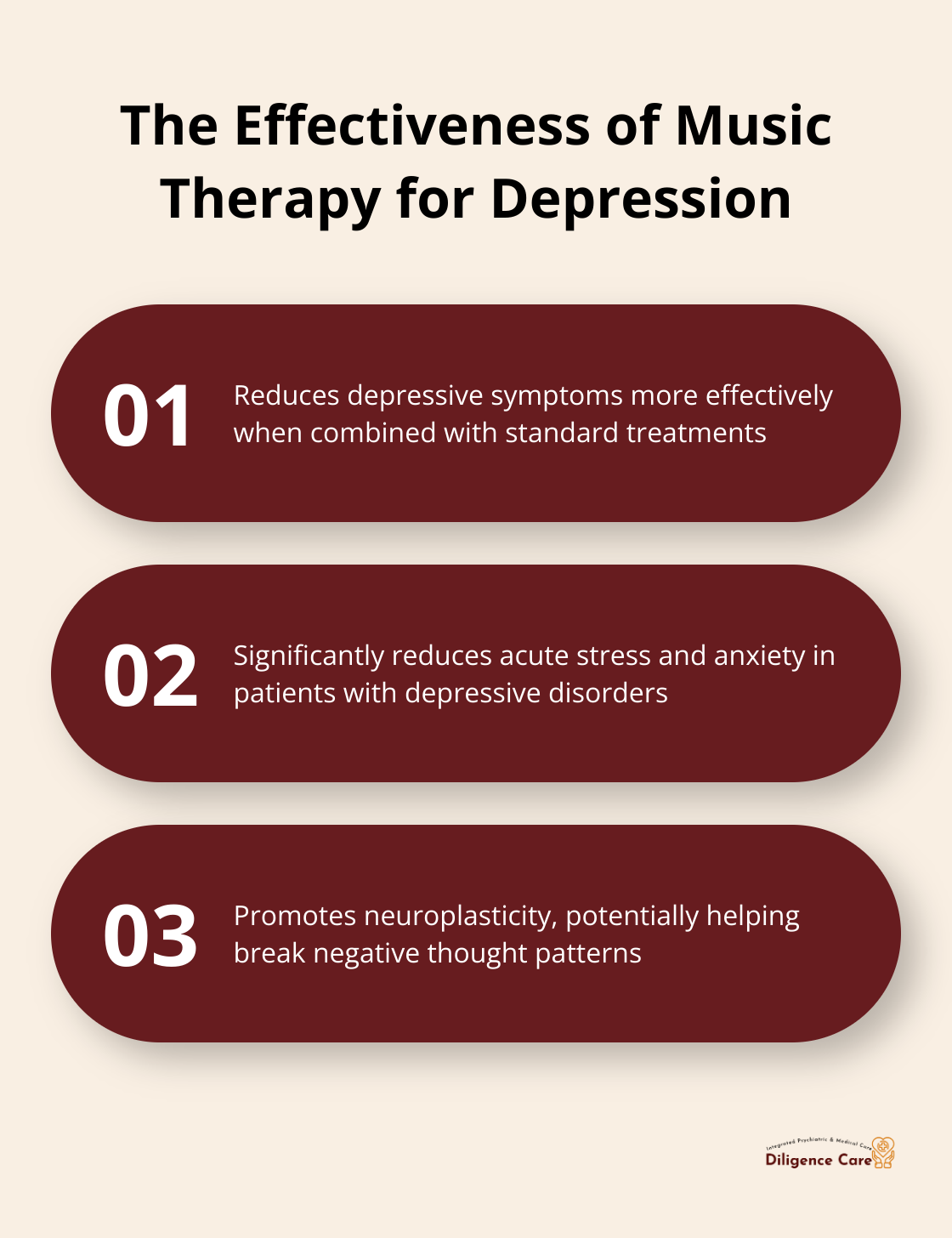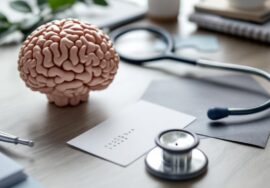
Music as a Treatment for Depression
Depression affects millions worldwide, impacting daily life and overall well-being. While traditional treatments exist, innovative approaches are gaining recognition.
At Diligence Integrated Care, we’re exploring music treatment for depression as a powerful tool in mental health care. Research shows that music can positively influence brain chemistry and emotional states, offering a promising avenue for managing depressive symptoms.
What is Depression and Why Does it Matter?
The Complex Nature of Depression
Depression extends far beyond mere sadness. It’s a multifaceted mental health condition that affects millions worldwide. Globally, an estimated 5% of adults suffer from depression in any given year. This staggering statistic underscores the urgent need for effective treatments and robust support systems.

Depression manifests in various ways. Common symptoms include persistent sadness, loss of interest in activities, changes in appetite or sleep patterns, and difficulty concentrating. These symptoms can significantly impact daily life and relationships.
Dr. Bolanle Oluwadara, MD (https://diligenceintegratedcare.com/providers/), notes that depression often goes undiagnosed. Many people dismiss their symptoms as temporary mood swings, unaware that they’re dealing with a treatable condition.
The Far-Reaching Impact of Depression
Depression’s effects extend beyond the individual, touching families, workplaces, and communities. The economic burden is substantial, with estimates suggesting it costs the global economy $1 trillion annually in lost productivity.
In Southern California, depression strains local healthcare systems and social services. This reality emphasizes the importance of accessible, effective treatment options.

Current Treatment Approaches
Traditional treatments for depression typically include psychotherapy and medication. Cognitive Behavioral Therapy (CBT) stands as a widely used and effective form of psychotherapy. For medication, doctors often prescribe selective serotonin reuptake inhibitors (SSRIs).
However, these treatments don’t work for everyone. Bernadette Akpengbe, PMHNP-BC, FNP-BC (https://diligenceintegratedcare.com/providers/), emphasizes the importance of personalized treatment plans. She states, “What works for one patient may not work for another. That’s why we always explore innovative approaches, like music therapy, to complement traditional treatments.”
The Promise of Alternative Therapies
While traditional treatments remain the backbone of depression care, alternative therapies gain traction. Music therapy, in particular, shows promise. A study published in the Journal of Affective Disorders found that music therapy, when combined with standard care, can significantly reduce depressive symptoms.
The potential of music therapy excites mental health professionals. It’s non-invasive, cost-effective, and integrates easily into patients’ daily lives. As research in this field continues, healthcare providers commit to offering comprehensive and effective care.
The exploration of music therapy as a treatment for depression opens up new possibilities in mental health care. In the next section, we’ll examine the science behind music therapy and its effects on the brain.
The Brain on Music: A Symphony of Healing
Music therapy isn’t just a feel-good approach to mental health – it’s backed by solid science. Research shows that music can significantly alter brain chemistry and function, offering a powerful tool in the fight against depression.
The Neurochemical Dance
When we listen to music, our brains light up like a fireworks display. The National Institutes of Health reports that music stimulates the release of dopamine, the feel-good neurotransmitter associated with pleasure and reward. This boost in dopamine can counteract the low levels often seen in depression.
Music also triggers the release of serotonin and norepinephrine, two key neurotransmitters involved in mood regulation. These neurochemical changes can help alleviate depressive symptoms and improve overall mood.
Rewiring the Depressed Brain
Music doesn’t just affect our brain chemistry – it can actually change the structure of our brains. Music is believed to improve mental health by regulating mood, alleviating anxiety, promoting neuroplasticity, and improving brain function.
This increased neuroplasticity means the brain becomes more adaptable, potentially making it easier for individuals to break out of negative thought patterns associated with depression. This rewiring effect could explain why some patients report feeling more resilient and positive after engaging in music therapy.
The Evidence Speaks
The effectiveness of music therapy for depression isn’t just theoretical – it’s been proven in numerous studies. A meta-analysis published in the Journal of Clinical Psychology found that music therapy, when combined with standard treatments, reduced depressive symptoms more effectively than standard treatments alone.
Music listening has been shown to significantly reduce acute stress and anxiety for certain patients with depressive disorders, contributing to an overall improvement in their condition.

Practical Applications of Music Therapy
Music therapy can take many forms, from passive listening to active participation. Some effective methods include:
- Guided imagery with music
- Songwriting and composition
- Rhythmic entrainment (synchronizing body movements to music)
- Group drumming sessions
These techniques can help patients express emotions, reduce stress, and improve mood (all crucial components in managing depression).
The Future of Music Therapy
As research in this field continues to grow, we expect to see more innovative applications of music therapy in mental health treatment. From personalized playlists to virtual reality music experiences, the possibilities are exciting.
The power of music to heal the mind is undeniable. In the next section, we’ll explore practical ways to implement music therapy in your life, whether you’re dealing with depression or simply looking to boost your mood.
How to Use Music Therapy for Depression
Music therapy offers a powerful and accessible tool for managing depression. At Diligence Integrated Care, we’ve observed how incorporating music into treatment plans can improve outcomes for our patients.
Personalized Music Therapy Approaches
There’s no universal approach to music therapy. Dr. Bolanle Oluwadara, MD emphasizes the importance of personalization: “What resonates with one person might not work for another. We help our patients find the right musical interventions for their unique situations.”
Some effective music therapy techniques include:
- Active music-making: Playing instruments or singing can boost mood and self-expression.
- Lyric analysis: Examining song lyrics helps process emotions and gain new perspectives.
- Guided imagery with music: This technique combines relaxation with carefully chosen music to promote healing.
- Rhythmic entrainment: Synchronizing body movements to music can reduce stress and improve mood.
Combining Music Therapy with Traditional Treatments
Music therapy works best when combined with other evidence-based treatments. Bernadette Akpengbe, PMHNP-BC, FNP-BC notes, “We often use music therapy alongside cognitive behavioral therapy and medication management. This multi-faceted approach addresses depression from multiple angles.”
For example, a patient might practice mindfulness meditation with calming background music before a therapy session. Or they might use songwriting as a way to process emotions between appointments.
Practical Music Strategies for Daily Life
While professional music therapy sessions provide value, you can incorporate music into your daily routine:
- Create mood-boosting playlists: Curate collections of songs that uplift your spirits or help you process difficult emotions.
- Use music for sleep hygiene: Soft, slow music can help you relax before bed.
- Practice mindful listening: Set aside time each day to listen to music without distractions. Focus on the instruments, lyrics, and how the music makes you feel.
- Explore new genres: Broadening your musical horizons can provide fresh emotional experiences and perspectives.
- Join a community music group: Singing in a choir or playing in a band offers both musical engagement and social connection (which is important for managing depression).
Professional Guidance for Music Therapy
While music can be a powerful tool, it doesn’t replace professional help. If you struggle with depression, reach out to a mental health professional. Our team at Diligence Integrated Care stands ready to help you explore music therapy and other treatment options tailored to your needs.
Final Thoughts
Music treatment for depression offers a powerful approach to managing mental health. Scientific evidence supports its effectiveness, with studies showing significant reductions in depressive symptoms when combined with standard treatments. The versatility of music therapy allows for personalized treatment plans, catering to individual preferences and needs.
At Diligence Integrated Care, we integrate music therapy into comprehensive treatment plans. Our team of mental health professionals works closely with patients to develop tailored approaches that may include music therapy alongside traditional treatments. We encourage those struggling with depression to explore music therapy as part of their treatment journey.
Professional guidance remains essential when dealing with depression. The team at Diligence Integrated Care supports patients in exploring music therapy and other evidence-based treatments. We combine innovative approaches like music therapy with traditional care to provide comprehensive support for those navigating the challenges of depression.











